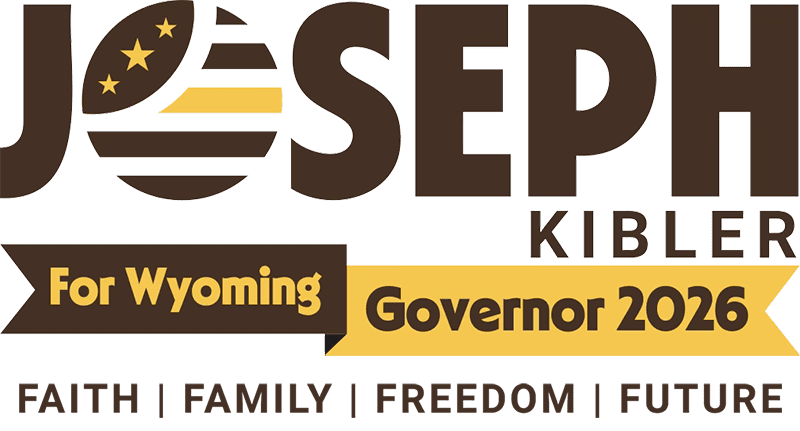If a dollar can’t explain its job, it shouldn’t be on the payroll. Families live with that discipline every day, and government should too. In the Wyoming governor 2026 race, I’m advancing a simple idea: honest taxes and honest budgets—where money follows results you can actually see.
This isn’t about starving services or writing new checks. It’s about clarity, purpose, and proof. That’s how we Be Something Different.
Every Dollar Has a Job — No Passengers
Budgets shouldn’t be historical artifacts; they should be work plans. We’ll use a rotating deep-dive cycle so a manageable slice of spending is rebuilt from the ground up each year, while the rest operates on priority- and performance-based budgeting. Over time, everything gets a thorough look—without overwhelming frontline teams. The question is always: What does this dollar do for Wyoming families?
Sunset Reviews That Mean Something
Programs don’t need to exist forever to be valuable. Put them on a sunset timer with a light, commonsense review: keep it if it works (leaner if possible), redesign it if it’s close, or wind it down if it’s not delivering. Results over inertia.
Plain-English Scorecards
If a program is working, people should be able to tell in under two minutes. Post small, public scorecards: dollars in, services delivered, turnaround time, and a simple outcome indicator. No jargon. No haze. Just enough sunlight for citizens to make sense of the tradeoffs.
Unit Costs: What Does It Really Take?
Families compare costs every day. Government should too. Track unit costs on the basics—permits issued, cases closed, miles maintained, students advanced—and watch for spikes. When unit costs fall and service holds steady or improves, we know something is working.
Freedom to Save (Without Growing Government)
When teams find verified, recurring efficiencies, let them keep a portion to reduce workload, replace aging tools, or fill critical roles. That’s not bureaucracy—it’s incentive alignment. People work smarter when they can see and feel the benefit.
Rainy-Day Discipline
Wyoming knows booms and dips. Tie rainy-day decisions to clear triggers and public explanations. Save when the sun is shining; be steady when the clouds roll in. Families expect that kind of prudence—and so should they from their state.
No Blank Checks, No Surprise Fees
If a proposal can’t show clear purpose, unit costs, and a path to results, it waits. If a fee exists, it’s posted plainly and reviewed on the same outcome basis as spending. Hidden charges and automatic escalators don’t belong in an honest-budget culture.
Vendors: Pay for Outcomes, Not Promises
When outside partners help, contracts should reward results and include simple clawbacks when outcomes aren’t met. Clean, respectful, transparent. If you deliver, you get paid. If you don’t, taxpayers don’t eat the bill.
Why this matters to Wyoming
- Families: less waste and more predictable services.
- Small businesses: fewer delays, clearer fees, faster answers.
- Communities: dollars move from paperwork to real outcomes people can feel.
The point isn’t to cut for the sake of cutting or to spend for the sake of spending. The point is honesty—every dollar with a job and every program with a purpose you can see. That’s how we build a budget worthy of Wyoming.
Be Something Different: light where government gets in the way, strong where it truly serves, and always honest about the bill.
FAQs
Q1: Is this a new program or bigger bureaucracy?
No. It’s a way of working: small public scorecards, rotating deep dives, and outcome-focused contracts—using the tools we already have.
Q2: Does this mean across-the-board cuts?
No. It means targeting duplication and low-value spending while keeping what clearly serves families and communities.
Q3: How will the public track progress?
Through plain-English scorecards (dollars, turnaround times, outcomes) and simple updates on savings redeployed to frontline work.
Q4: What protects rural counties with limited staff?
A rotating cycle and shared templates reduce workload spikes. Efficiency gains can be used to lighten frontline burdens—not add layers.Q5: How do we keep politics out of this?
By posting the same clear measures for everyone: purpose, unit cost, turnaround, and outcomes. If it works, keep it; if not, fix it or finish it.

